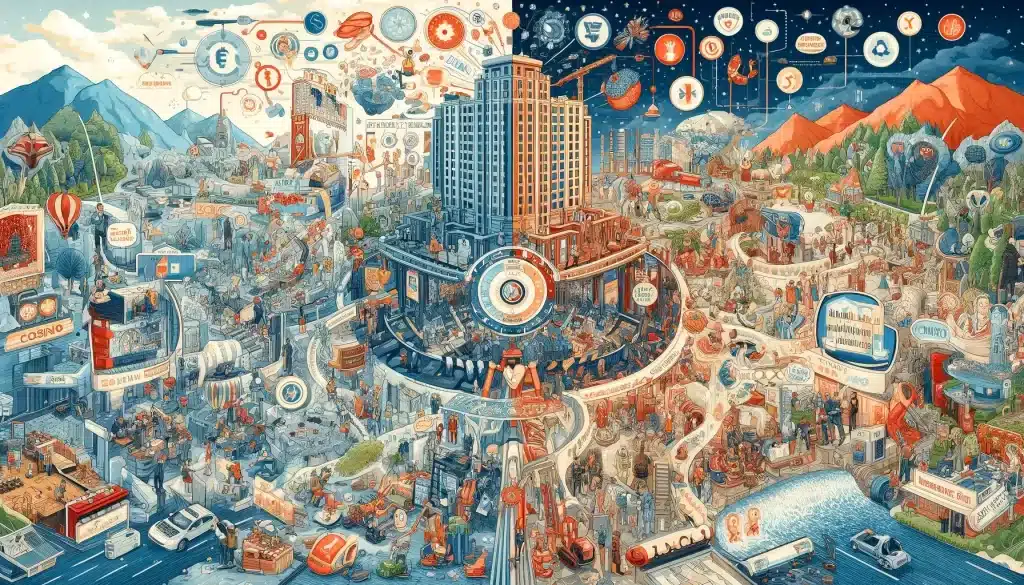The casino industry, often seen through the narrow lens of entertainment and gambling, casts a much wider net of influence than commonly perceived. Beyond the glitz and glamour of the gaming floor, casinos have a profound ripple effect on various sectors, driving economic growth, innovation, and even cultural shifts. This article explores the multifaceted impact of casinos on diverse sectors, highlighting their role as economic catalysts and cultural influencers.
Economic Impact and Job Creation
One of the most tangible impacts of casinos is their contribution to the local and national economies. Casinos are major employers, offering a wide range of job opportunities, from hospitality and customer service positions to high-tech roles in IT and security. Moreover, the construction of casino facilities stimulates the local construction industry and creates additional jobs.

Casinos also generate significant tax revenue for governments, which can be allocated to various public services and infrastructure projects. In regions where casinos are a key part of the tourism industry, they attract international visitors, boosting income for local businesses, such as hotels, restaurants, and entertainment venues.
Innovation and Technology
The casino sector is a hotbed for technological innovation. To enhance the gaming experience and attract a younger demographic, casinos invest in cutting-edge technologies, including virtual reality (VR), augmented reality (AR), and blockchain. These technologies not only revolutionize the way games are played but also have applications beyond the casino floor, influencing sectors like real estate, healthcare, and education.
Blockchain technology, for example, has been adopted by some casinos for secure and transparent transactions, showcasing its potential for wider financial applications. Similarly, VR and AR technologies used in casino gaming are paving the way for immersive experiences in other entertainment sectors and training simulations in various industries.
Cultural Influence
Casinos also wield significant cultural influence. The depiction of casinos in movies, literature, and other media has shaped public perceptions of glamour, risk-taking, and fortune. This cultural footprint extends to fashion, with casino-inspired aesthetics making their way into mainstream fashion trends.
Furthermore, casinos often host and sponsor events, including concerts, sports, and exhibitions, contributing to the cultural vibrancy of their locales. In some cases, casinos have been instrumental in revitalizing areas by attracting tourists and fostering a lively entertainment scene.
Regulatory and Social Implications
The expansion of the casino industry has led to increased regulatory scrutiny and the development of responsible gambling practices. Casinos now work closely with regulatory bodies to ensure compliance with laws and to promote responsible gambling among their patrons.
In addition, casinos have taken on social responsibilities, contributing to community projects and charitable causes. Through corporate social responsibility (CSR) initiatives, casinos play a role in community development and environmental sustainability.
Conclusion
The influence of casinos extends far beyond their immediate economic contributions, touching upon technology, culture, and social responsibility. As the industry continues to evolve, its ripple effect on diverse sectors is expected to grow, highlighting the multifaceted role casinos play in shaping economies, driving innovation, and influencing cultural trends. The challenge lies in balancing this growth with responsible practices to ensure that the impact of casinos remains positive for all stakeholders involved.











